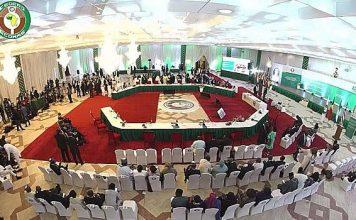Information gathered shows that member nations of the Economic Community of West African States have not yet complied with or implemented all 150 rulings rendered by the Court of Justice.
According to a record of the judgment’s status that our correspondent was able to receive from the court registry, there are judgments that need to be enforced in all ECOWAS countries as well as some of its institutions.
As of January 31, 2024, the record states that Nigeria had the most number of unenforced judgments (43), followed by the Republic of Togo (23), and Guinea (14). Guinea was ranked third on the list.
The others are Senegal (8), Sierra Leone (7), Cote D’Ivoire (6), Mali (11), the Republic of Niger (9), and Senegal (8).
Benin Republic, Liberia, and Burkina Faso each have four unenforced judgments; The Gambia has not yet executed five. Guinea Bissau and Cabo Verde each have one, whereas Ghana has three.
There are five rulings from the ECOWAS commission that are still pending enforcement.
Furthermore, the rulings rendered in the cases of EBID v. Cross River State and Petrostar Nigeria v. Blackberry Nigeria Ltd. have not been implemented.
Of the rulings listed as enforced as of January 31, 2024, thirty-four judgments had been put into effect.
Among the 34, eight have been enforced in Nigeria, five of which were from the Socio-Economic and Accountability Project’s Registered Trustees.
One of the cases with the designation ECW/CCJ/APP/10/10
When security personnel shot at nonviolent protestors in 2009 in Bundu Ama, Port Harcourt, SERAP filed a lawsuit against the FG.
The Nigerian government was fined N11 million by the ECOWAS court for failing to uphold and protect the right to peaceful assembly and association.
Four have been enforced by Mali; three by Niger; two by The Gambia; and one each by Burkina Faso, Sierra Leone, and Liberia.
The ECOWAS parliament has one, but the ECOWAS commission has implemented seven.
One of the main issues facing the ECOWAS Court of Justice has been the enforcement of the rulings in the member states.
Lateef Fagbemi (SAN), the Minister of Justice and Attorney General of the Federation, has urged the court to desist from rendering judgments and rulings that are unenforceable.
He added that the court needs to take into account the distinct traits of the member nations in the regional bloc.
Femi Falana (SAN), a human rights attorney and past president of the West African Bar Association, disagreed with the AGF, stating “With respect to the Honourable Attorney-General, not all ECOWAS member states disobey the judgments of the ECOWAS Court like Nigeria.”
Falana associated defiance to rulings from local and regional tribunals with the coups in certain West African nations.
He said, “The hostile disposition of African states to courts is essentially the same. African governments, including Nigeria, are yet to move away from the era of military and apartheid regimes when martial law was the order of the day.
“The rule of law is substituted for the rule of rulers. Not only are orders of courts disregarded, but judges who rule against governments are harassed by security forces. The same attitude has been extended to regional and international courts.”
Following a recent discussion between President Bola Tinubu and Justice Olukayode Ariwoola behind closed doors at the State House, the President of the ECOWAS Judicial Council announced the formation of two committees to investigate member state disobedience.
“We have set up two committees; one to look into the rules and the other to look into the position or the status of the enforcement of judgments of the community court,” Justice Ariwoola said.
